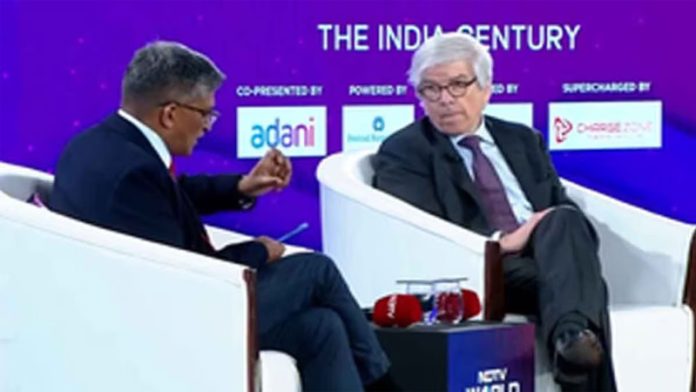NEW DELHI, Oct 21 : Nobel laureate Paul Romer on Monday said Aadhaar is the most important technological system in the world right now and it has laid the foundation of a platform to enable people to avail government benefits, including direct benefit transfer.
Speaking at the NDTV World Summit, Romer said that a similar platform could not be set up successfully in the US because they were monopolised by the private sector.
“Aadhaar is the most important technological system in the world right now. Aadhaar solved only one problem. Present a person to me, and I will tell you what that person’s number (is).
“… But with that foundation, you can then build all of these fantastic services that you now enjoy,” he said.
The 2018 Nobel Prize for Economics recipient noted that the government in India was not afraid to indicate how it would be used in something like Unified Payment Interface (UPI) and Direct Benefit Transfer (DBT).
“What people in India saw is that they could build a platform of Aadhaar that was controlled by the government and could be used for the benefit of the people, not to generate wealth for just a…small subset of people,” he said.
Romer pointed out that despite many cases in the Supreme Court against the Aadhaar scheme, the government in India pushed this idea forward and did not let the judges hamstring them, and they achieved this remarkable success.
“In the West, we are too hamstrung by the judiciary,” he said.
Romer noted that urban centres are locations where GDP gets produced all over the world and India needs to take advantage of the potential there.
“The challenge with urbanisation is land assembly. If you can assemble a large enough parcel of land, you can take that land which is worth very little and turn it into land which is phenomenally valuable by creating a modern city there,” he suggested.
The former chief economist at the World Bank also said both China and Russia want to function as empires, in a bid to increase influence.
“China and Russia both want to go back to a world of empires…They think of empires as having the ability to meddle and you know influence their whole sphere of influence, and the national border is not important,” he said.
According to Romer, India needs to decide, does it wants to be on the side of the empire or wants to stand up for the importance of the sovereign state as the organising principle going forward in the world.
“India should be able to say we don’t like empires. India’s stand could decisively tip the balance,” he said. (PTI)


